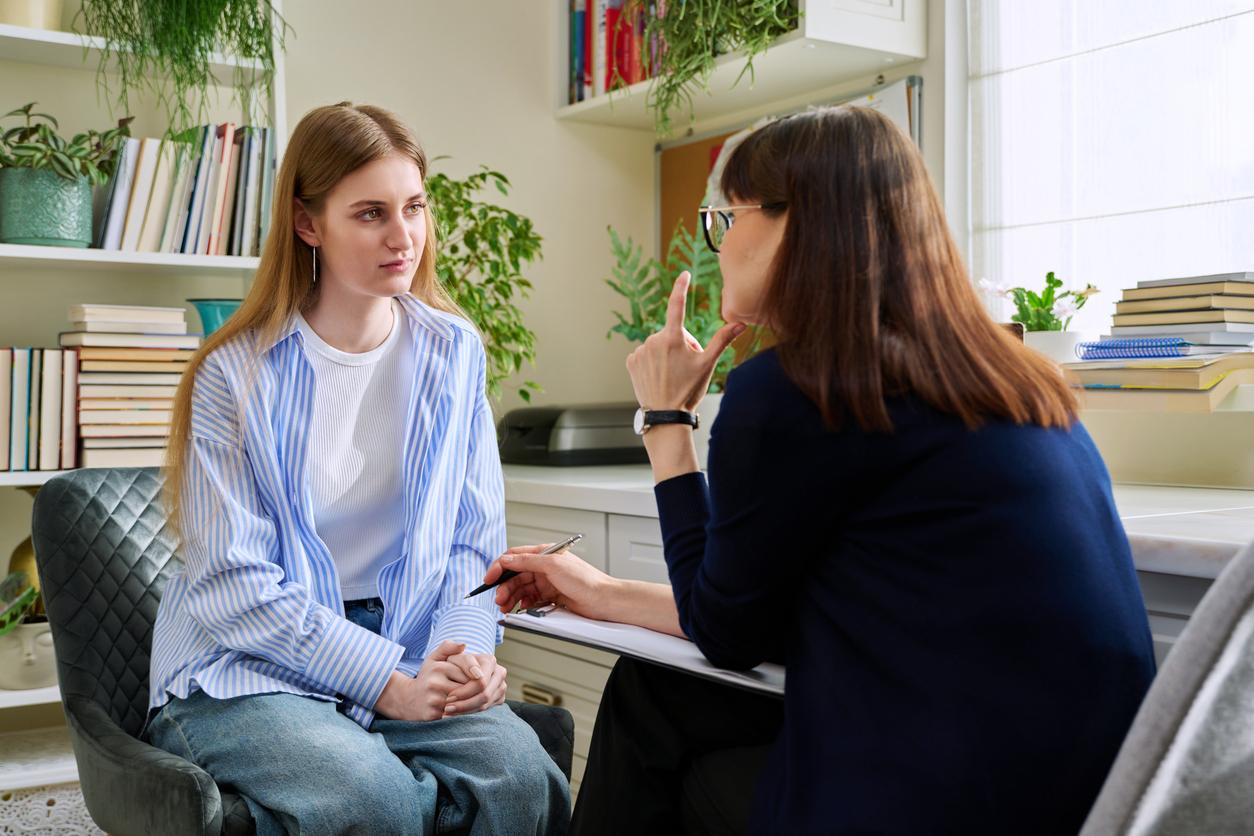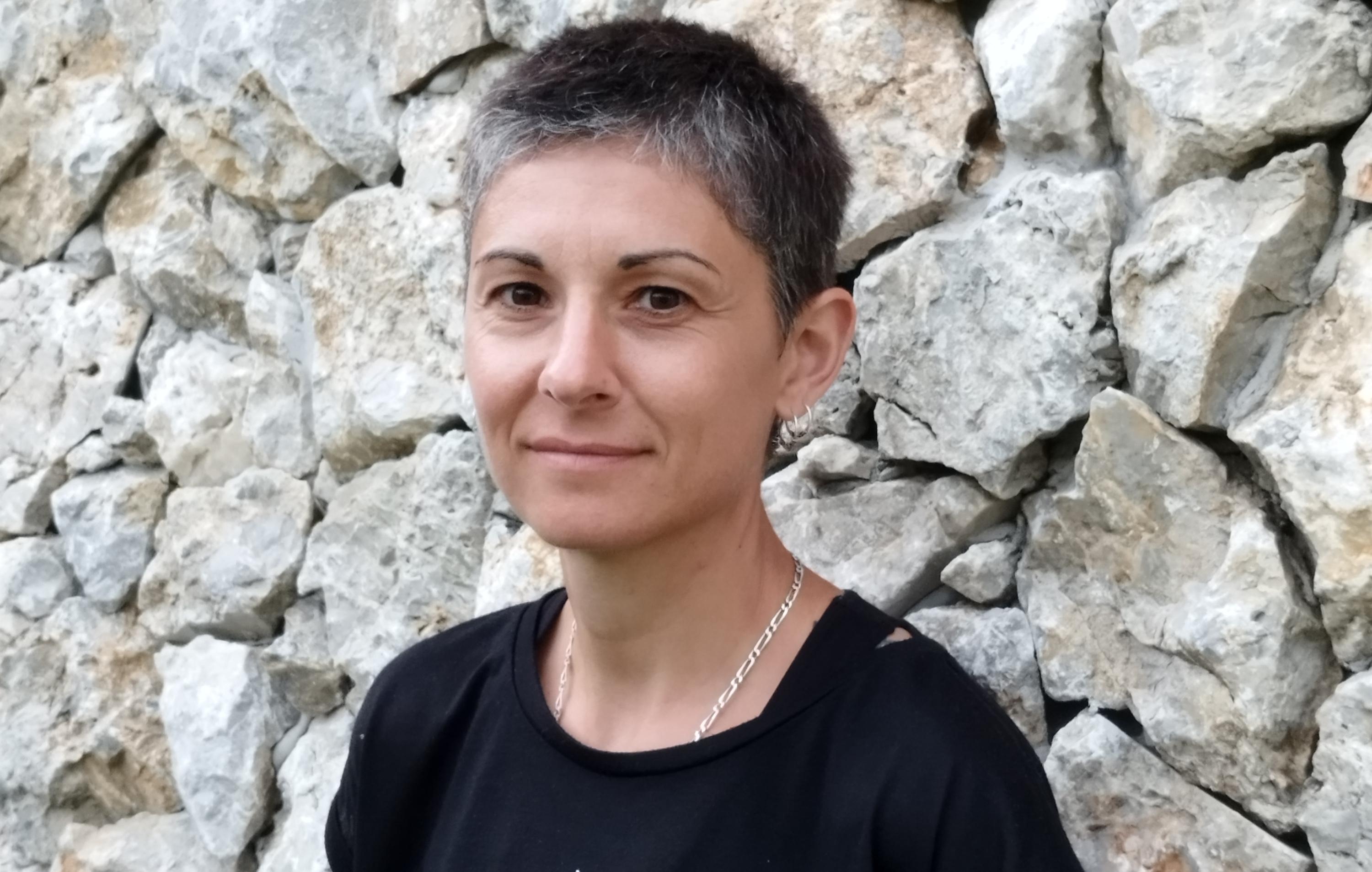Devoured by anorexia for 25 years, Aurore tells us about the very difficult daily life from which she cannot escape despite treatment.

- Aurore has been anorexic for 25 years.
- Despite all her efforts, she cannot cure this mental illness.
- Today, she talks about her difficult daily life marked by her pathology.
Aurore’s story is not the one we are used to seeing in the media or on social networks. Far from these ex-anorexics who tell how they got through it, this forty-year-old is still fighting against this eating disorder which has been devouring her for 25 years. Every day, step by step, in great suffering and without being able to put an end to it.
Anorexia: “I only eat vegetables and dairy products”
“I’m still in the thick of anorexia. I no longer weigh myself for fear of the result on the scale, but I must weigh between 38 and 40 kilos for 1m61. And yet, at the moment, I feel so fat that I only eat vegetables, dairy products and very rarely cereals. Never sweets, meat, bread or pasta. Everything is very dissociated and very calculated. Shopping is hell, because I have a real scan in the head”, says this 42-year-old from Rennes.
“I’m also obsessed with schedules. For example, I try to always go to the bathroom at the same time and I never eat anything before 10:30 p.m.,” she continues. “I only eat in the evening because I work very, very long. My dinner takes me between two and two and a half hours, sometimes I even fall asleep at the table. All my eating is also full of rituals. I have to always eat in the same place, with the same plates and the same cutlery. I must also be alone at home, with the shutters closed and the door locked so that no one enters my sphere.” she confides.
Anorexia: “I exercise 8 hours a day to allow myself to eat”
“I also exercise excessively to allow myself to eat, between 8 and 10 hours on weekends and between 3 and 5 hours during the week,” continues Aurore, who becomes exhausted and isolates herself a little more each day on her treadmill and exercise bike.
In his book “Not like the others” recently published by Éditions du Panthéon, she also recounts her obsession with constipation. “I’m down to 8 laxatives a day to purge myself. For fear of not going to the toilet as I want, I have removed from my menus all foods that tend to cause constipation even if they are things that I enjoy. I buy every book I can find on the subject of methods to facilitate bowel movements and I also spend a lot of time on the Internet to identify the best foods and methods for having a bowel movement. As soon as I discovers “a trick” to facilitate my digestion and thus not spend hours in the office, I don’t change”, laments the public writer, who, to his great regret, has also been rendered infertile by the illness.
As with many mental illnesses, the progression of Aurore’s anorexia is not linear: it fluctuates between more or less acute phases. “Today, I know that I have regressed a lot on certain points compared to other periods of my life,” she notes with pain and lucidity.
Anorexia: “My hospitalization was real carnage”
However, Aurore tried everything to get out of anorexia. Support from psychiatrists and nutritionists, taking antidepressants and mood stabilizers or even hospitalization.
“In 2001, I found myself in an addiction department in Nantes where the hospital staff were not at all benevolent. I remember a nurse who came to speak to me in a corridor, who made me cry and who left saying to me “Okay, that’s it!” They forced me to eat, they locked me in my room and forced me to stay facing the wall so that I could think about what I had done.” I was not allowed to do physical activity, I saw it as a prison. It was very violent, it was real carnage. Even today, I am regularly offers stays in psychiatry, but for me, it is absolutely impossible to relive this type of experience!”, she exclaims.
Anorexia: “I unconsciously try to get my parents’ attention by hurting myself”
With a busy social and professional life, Aurore has learned to live with her pathology. But does she know why it is so difficult for her to break this infernal cycle? “Doctors say that even today, I unconsciously try to attract the attention of my parents by doing harm to myself. Because when I was little, they were very taken by my brother who was a real daredevil and often found himself in the hospital”, she said after some hesitation.
Perhaps also because the trauma of his first and only romantic relationship – which will also mark the beginning of his illness – is not yet resolved. Or that heredity and genetics weigh too heavily in the balance. “My father was anorexic when he was young, but he got through it on his own and is very angry with me for not being able to do the same,” Our patient reveals our patient to me during the conversation.
Anorexia: “I wrote this book so that people better understand my illness”
Why did she decide to write down her story? “I needed the bad to come out. I had to spit out what I needed to spit out, because there are a lot of things that I put in my book that I had never told anyone, even not to my therapist. This is for example the case when I recount the period when I spent all my Saturday afternoons looking for pastries to eat in the evening following a whole week of deprivation. I have so much ashamed of having been able to do that. But it was addictive, I needed it”, explains Aurore.
“I also wrote this book so that people can better understand my illness, my functioning and my reactions, like when I get angry, for example. This also allows me to avoid answering the many questions that keep coming up. about my condition. Now I can refer people to my book and say, ‘Here’s my how-to’.” she continues.
She dedicates her book to her parents and her brother, with whom relations are complicated and trigger sobs. “I would like to apologize to my parents and my brother for all the grief and pain I have caused them for so many years. Mom, Dad, forgive me for being the way I am or am not” , she writes at the end of her work.
Yet another proof, if proof were needed, that the vast majority of people with psychiatric disorders still feel very guilty about their pathology. However, just like physical illnesses, it is sometimes extremely difficult, if not impossible, to control them.


















